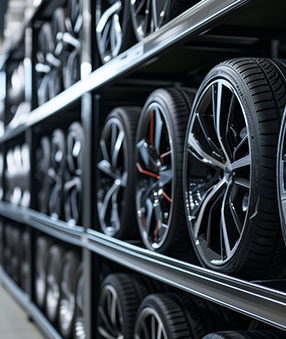
Black Friday is the perfect time to find deep price cuts and discounts on computers and computer gear. However, if you're unfamiliar with the tech world, this could be a daunting experience. There's a lot to know about computers, and all the acronyms can become confusing very quickly. Here's a list of 8 essential terms to know when picking out your new computer.
CPU
The Central Processing Unit is the brains of your computer. More commonly referred to as the processor, your CPU is in charge of reading input instructions and executing those commands. The processor runs your operating system (Windows/iOS) and all your installed programs and applications, making sure everything is working efficiently and effectively.
Core
A core is simply the part of the CPU that handles tasks. Most CPUs are multi-core, allowing for more tasks to be running simultaneously. Cores can focus on a single task, or work together on larger, more complex tasks. The more cores your CPU has, the more applications and programs you can run at once.
GHz
Much like our brain, the CPU can be overloaded if it receives too many instructions. When looking at computer specs, you'll see the term GHz, or gigahertz. This describes how fast your CPU can process user and application input. Generally speaking, the higher the number, the better your CPU will handle heavy loads.
Resolution
How crisp do you want your computer screen? Resolution refers to the number of pixels shown in your computer display. Most displays are either HD (1920 x 1080 pixels) or 4K (3840 x 2160 pixels), while some Apple devices feature 5K resolution. The higher the pixel count, the better the picture.
GPU
A Graphics Process Unit primarily handles 3D graphical processes and applications. These type of processes can put an enormous strain on your CPU. If you're big into graphic design, photography, creating videos, or playing computer games, you'll want to get a computer with a quality GPU.
HDD/SSD
Your hard drive is where the computer stores everything. Programs, pictures, and documents all get saved here. There are 2 types of hard drives you'll usually see when buying a new computer: HDD (basic hard drive), SSD (Solid State Drive). There's nothing wrong with an HDD, but if you're looking for little more speed and efficiency, you may want to invest in an SSD. Just know that this type of hard drive comes with a premium price tag.
RAM
Your computer is constantly running a lot of programs and processes. RAM, or Random Access Memory, let's your computer temporarily store, or pause, information about everything that's currently running. This allows your CPU to jump back and forth between different programs quickly and efficiently. A good way to think about RAM is like reading a book. Opening a book back up to where you left off takes time. With a bookmark, you can immediately jump back in. RAM is like your computer's bookmark.
Operating System
The operating system is the main platform your computer uses to run programs. Apple uses iOS, while most other computers run Windows. You're not restricted to one type or the other, and most programs will run just fine on both.
If you're ready for an upgrade, Progressive Leasing offers simple, flexible payment options from over 30,000 retailers. Find a store near you and discover your new computer by visiting our website at progleasing.com.
Trying to decide what type of computer to buy? We've got you covered!









